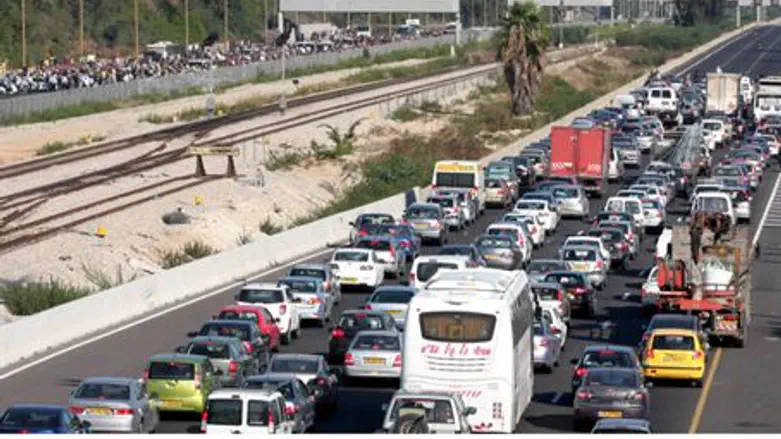
Israel has come up with a way to streamline car tax collection on the nation’s highways by using hi-tech photographic tax traps.
A network of up to 1,500 automated digital speed cameras, linked to a central control panel, is being installed across the country to help monitor traffic activity and prevent fatalities.
But officials are also planning to use the imaging software in the cameras to collect a “green congestion tax” – an air pollution tax to be levied on each car that travels on the Ayalon Highway, thus financing efforts by the government to fight pollution resulting from the traffic jams and congestion on the highway.
The cameras are very high quality video and still-shot digital devices, and they are being installed along all of the nation’s main roads. Video files of the vehicles that are photographed can be sent instantly through the internet or a phone line to the main control center, or to a regional center, without losing any of the quality. Moreover, there also now exists automatic identification software for the vehicles’ license plates, without the need for a human decoder.
An example of similar technology already in use can be found at Jerusalem’s Hadassah Ein Kerem Medical Center’s visitor parking lot, where tickets are initially encoded with the vehicle license plate upon entry into the complex. One pays for the time in the parking lot at an automated machine, and then exits the lot, inserting the prepaid ticket into a third machine which double-checks the encoded ticket against an image of the vehicle’s license plate as seen through a camera mounted at the exit. The entire process is automated. Only when the images match is the guard rail raised and the vehicle then allowed to exit.
As Globes business writer Dubi Ben-Gedalyahu points out, “anyone who takes a wider perspective will realize that behind the new network of speed cameras is a concealed broader technology trend that in the not-too-distant future will affect the pockets of every driver in Israel.”
Drivers of fleet vehicles, he adds, are especially headed for the financial cross-hairs, regardless of any traffic violations they may or may not commit, simply because they are on the road most often. Most leasing fleets use the highways in the Dan region at least twice a day, during peak hours.